
The great and the good of Africa gathered in the Ethiopian capital, Addis Ababa, on 31 July 2023, to celebrate Unisa’s 150th anniversary. The event was organised jointly by Unisa and the South African Department of International Relations and Cooperation (DIRCO), through the Embassy of the Republic of South Africa in Ethiopia.
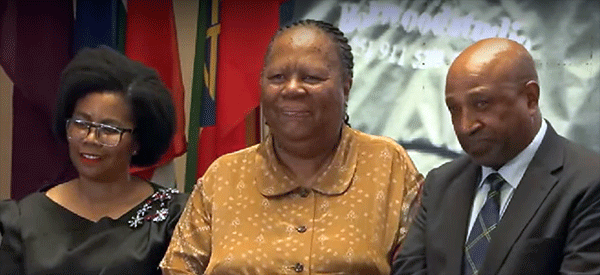
Presiding during the cake-cutting ceremony at the conclusion of the celebration were (from left) Prof Puleng LenkaBula, Unisa Principal and Vice-Chancellor, Dr Naledi Pandor, South African Minister of International Relations and Cooperation, and Dr Bernahu Nega, Ethiopian Minister of Education
Click here to watch a recording of the event.
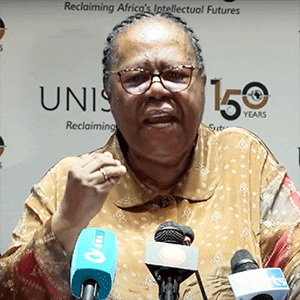
Dr Naledi Pandor, South African Minister of International Relations and Cooperation
The South African Minister of International Relations and Cooperation, the Honourable Dr Naledi Pandor, delivered the keynote address, themed "Science diplomacy (and innovation) in the reclaiming of Africa’s intellectual futures into the next 150 years".
Minister Pandor pointed out her personal link to the university and its rich history: a hundred years ago, her grandfather, prominent academic ZK Matthews, became the first black man to graduate from Unisa.
Commenting on the challenge to put the opportunity of human development to the best use possible, the Minister said that foresight and agility have seen Unisa adapting its practices through different iterations of open, distance and e-learning over the years. "During COVID-19," she said, "Unisa was able to respond speedily and smartly to the challenges of a world in lockdown, and was easily able to refit its digital offerings."
The Minister said that Unisa’s 150th anniversary is a celebration for the globe. "Africa recognises Unisa as being a life-changing institution for many people, especially the working class, who don’t often enjoy the opportunity’s offered by elite and expensive contact universities," she continued.
Minister Pandor said that what Unisa has done in Ethiopia is significant. "It has produced more than 800 master’s graduates and a significant number of PhDs," she explained. "These graduates, and other Unisa alumni across the continent, should be used to good effect as fulltime researchers in our various ministries, departments, and public institutions, because that is what is meant by reclaiming intellectual futures. Through their research and the skills they have acquired, they will inform the kinds of changes we wish to see."
She said that South Africa – and indeed, Africa – needs to ask itself very hard but basic questions. "What do we want the continent to be in 2063?," she asked. "What will Unisa be like in 2173, 50 years from now? To ensure that we achieve our vision, what do we need to do between now and then? It is vital that we become better at looking into the future, and really starting to create a set of African countries that have within them the ability to help us to create a very different world."
The Minister said that the eradication of poverty is the most important challenge in achieving this vision. "It is essential," she said, "that we utilise our intellectual resources, our universities, and develop concrete plans that actually work. What we must not do, is believe that we can become the best by being like the West. We must become the best by being quality Africans. We must respond to our African realities and develop innovations that speak to these."
As examples of African issues that urgently require solutions from African scholars and researchers, she cited how to turn shanty towns into smart cities, devising a cure for a disease killing thousands, African trypanosomiasis, also known as sleeping sickness, developing a vaccine for HIV and a new treatment for tuberculosis. "Our inability to resolve these issues render us the prisoner of other systems, rather than the determinant of our own future."
Turning to science diplomacy, of which Unisa has been a major proponent in recent years, Minister Pandor said that we have to advance knowledge generation on the continent by having Africa as central to what we do, even while partnering with entities further afield. "This will make us unique in the world, because we will have become innovative," she said.
In conclusion, Minister Pandor said that the possibilities of science are limitless, and as we proceed with groundbreaking research and innovation, it is going to be inevitable that multilateralism is going to become more and more important, and will be strengthened as countries break through frontiers with far greater speed and effectiveness through working together. "My hope," she said, "is that in rebooting multilateralism and recasting it, science will also help to fortify the bonds of global solidarity on many of the pressing issues of our time. It is time that the issues of Africa become the preeminent issues of the globe. It is only if we, as Africans, make this our agenda that we will achieve this objective."
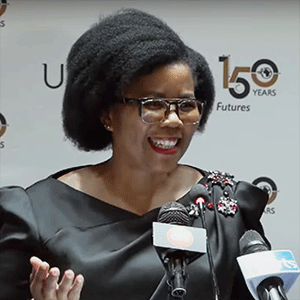
Prof Puleng LenkaBula, Unisa Principal and Vice-Chancellor
Setting the scene in her address earlier in the evening, Prof Puleng LenkaBula, Unisa Principal and Vice-Chancellor (VC), briefly recounted the institution’s illustrious history as the world’s first – and preeminent – distance education institution. "Africans across the continent, and the diaspora, can be immensely proud of this unique innovation that Unisa has added to human civilization as an African contribution," she said.
Lauding Unisa’s partnership with Ethiopian society, she said: "We have journeyed with you in the reimagination of human resources capital, spread across various sectors in your country."
The VC said that the evening was a celebration of the governments and people of South Africa and Ethiopia in the spheres of science, education, culture and innovation. "As a truly Pan-African university, shaping futures in the service of humanity, Unisa considers the establishment of the Ethiopia Regional Centre as one of the significant milestones that we are celebrating," she continued. "We are proud of the work and growth of the centre, and its impact in Ethiopia and the region."
The VC said that local and international scholars and students are increasingly showing an interest in Unisa. "We have looked into ten catalytic niche areas central to the developmental questions that the continent faces, a solutions system that we as Africans through knowledge, research, innovation, research, engagement and partnership can establish," she continued.
Education is not an elite indulgence, but a public good, commented the VC. "Unisa offers an important route to freedom and progress for Africa’s oppressed and marginalised majority," she said.
The VC referenced the historic transformative research charter, in which Unisa is a leading partner, which was recently launched to advance collaborations between Africa and the rest of the world.
In closing she welcomed attendees to "this important celebration of the university of leaders, the university that is a partner to the continent, and the university that projects Africa’s civilizations, knowledges and technologies across the globe".
Also speaking earlier in the programme, the Ethiopian Minister of Education, the Honourable Dr Bernahu Nega, said that the evening was a celebration of 150 years of a place where people can get together and think, seek knowledge, and seek truth.
"I congratulate the University of South Africa for reaching this very important milestone," he said. "What is important in this continent, in my view, is not just to expand education. We must make sure that we expand quality education. This, unfortunately, is one of the things we have not been doing very well. In Ethiopia we have taken it as our primary responsibility to ensure that we provide qualifications that are meaningful and contribute to the country’s development. Unisa is indeed the institution that has that integrity to assist us in continuing with this important drive," he concluded.
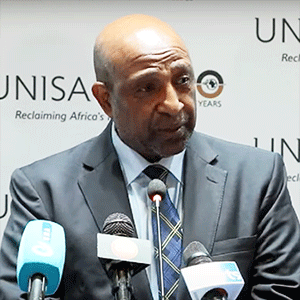
Dr Bernahu Nega, Ethiopian Minister of Education |
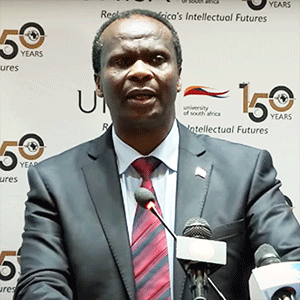
Ambassador Xolisa Makaya, Head of the South African Embassy in Ethiopia |
A fascinating panel discussion of the main issues relating to reclaiming Africa’s intellectual futures followed the main speakers. Ambassador Xolisa Makaya, Head of the South African Embassy in Ethiopia, delivered the vote of thanks.
#Unisa150
* By Philip van der Merwe, Editor, Department of Institutional Advancement
Publish date: 2023-08-01 00:00:00.0
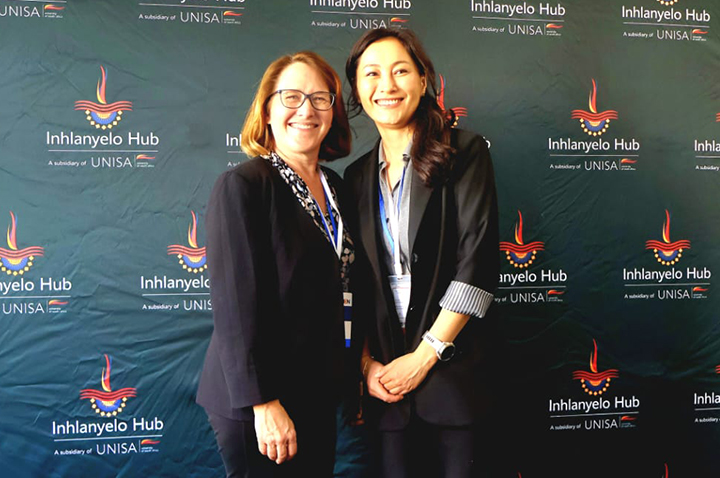 Unisa roundtable focuses on empowering SA women to lead in innovation
Unisa roundtable focuses on empowering SA women to lead in innovation
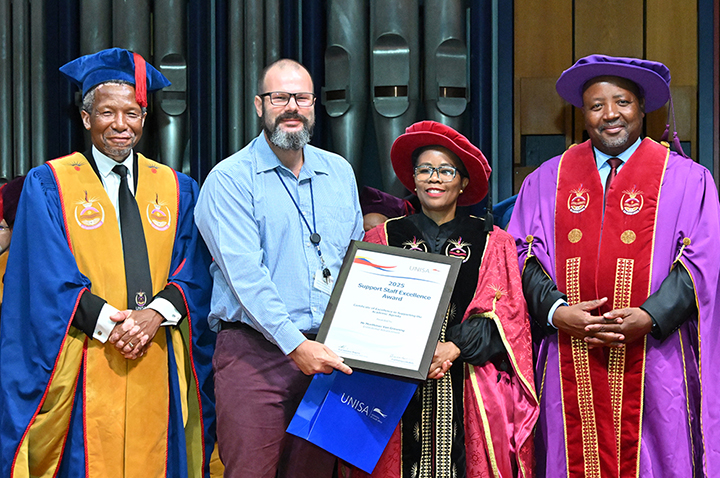 Unisan recognised for web excellence
Unisan recognised for web excellence
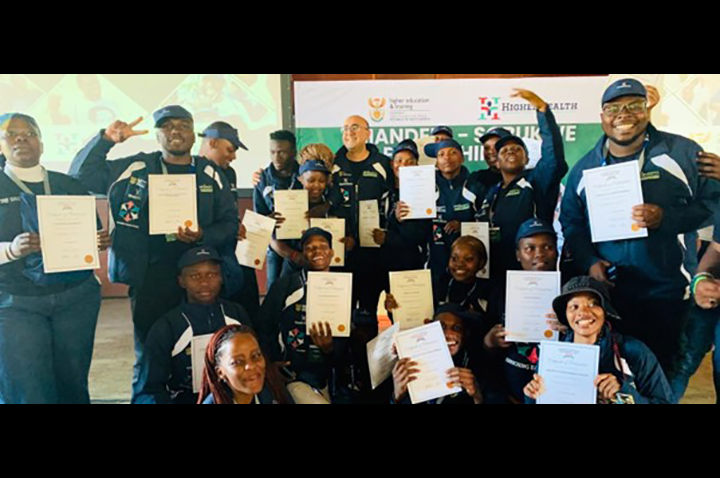 Office of the Dean of Students participates in leadership camp
Office of the Dean of Students participates in leadership camp
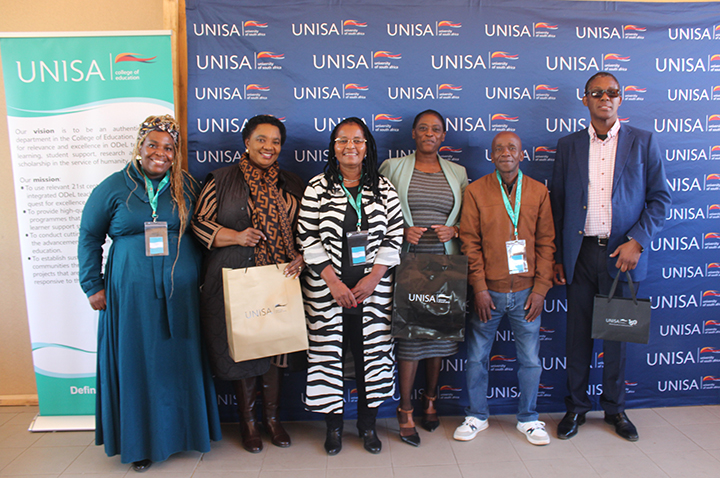 Unisa project fosters digital and pedagogical innovation in Limpopo schools
Unisa project fosters digital and pedagogical innovation in Limpopo schools
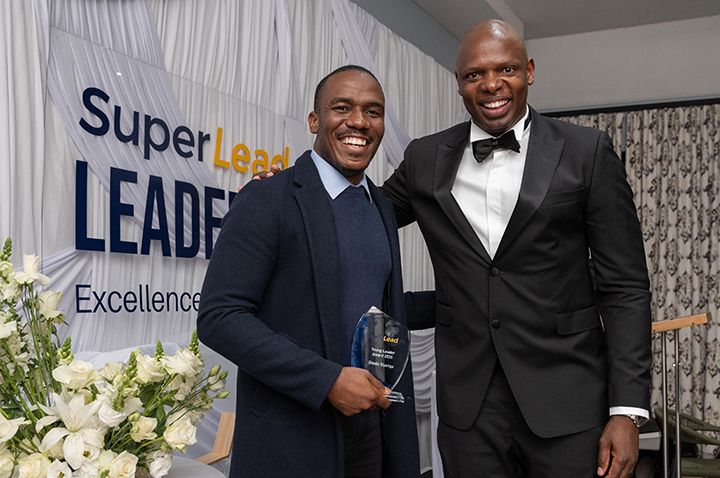 Unisa student wins prestigious national leadership award
Unisa student wins prestigious national leadership award